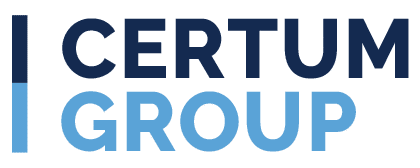Legal proceedings shut down with all other nonessential industries as a result of COVID-19-related closures. Now, the courts are akin to opened floodgates, resulting in a surge of litigation swamping companies around the globe. A June 2021 Reuters study found that the average backlog of court cases increased from 958 cases to 1,274 over 12 months from 2019 to 2020 and one-third of courts surveyed indicated that their case backlog increased more than 5%.
At Risk Settlements, we provide bespoke risk transfer solutions so companies can obtain certainty when faced with the uncertainty of litigation. So we were interested to understand how in-house legal operations teams are faring in this unprecedented moment.
In pursuit of answers, we partnered with a think tank, In the House, surveying general counsels and other in-house leadership of ~200 companies operating in over 50 industry sectors across 20 countries and 37 states. We asked them about their litigation activities, legal spend, risk appetite, and awareness of the solutions available to help transfer risk and monetize claims. Our findings indicated that in-house legal departments are struggling with understaffing and shoestring budgets like so many other sectors of the economy—leaving companies treading water, or worse, completely immersed in an onslaught of threatened, pending, or active litigation.
In the face of these challenges, Legal Operations teams must embrace new ideas and forms of innovation. Here’s what you should know based on our research:
In-House Personnel Are Feeling The Pain
Companies of all sizes are defending the largest volume of litigation they’ve ever seen. 65% of our Litigation Risk Survey respondents are currently defending active litigation, with 20% defending 10-50+ cases. Analysis of the survey’s respondent pool, composed of equal proportions of companies made up of 50, 500, 2,500, and 10,000 employees, revealed a profound lack of correlation between a company’s size and the size of its legal department: 80% of survey respondents have fewer than ten in-house lawyers. Keep in mind that 43 percent of the in-house department leaders who responded to our survey work for companies with more than 1,000 employees.
Overstretched legal departments are being squeezed by time and budget constraints, limiting the use of outside counsel for support: 52% of survey respondents said their legal department budgets (excluding staff salaries and benefits) were less than $1 million. Only 6% of companies have allotted an annual legal department budget of greater than $10 million, despite the fact that 20% of respondents are employed by an enterprise with more than 10,000 employees. Unsurprisingly, litigation budgets are similarly limited, with three-quarters of in-house counsel saying that outside counsel/litigation expenses made up less than half of their annual legal department budget.
Legal Operations: The Leading Solution
In recent years, businesses of all shapes and sizes have created and grown a new function within their legal units: Legal Operations Teams. The role of a Legal Operations function is myriad, encompassing a variety of tasks required to achieve success, from hiring and career development to budget management and technological growth. From a business perspective, Legal Operations teams provide high-quality and efficient legal services and represent an area for significant innovation.
25% of survey respondents created a Legal Operations team that provides much-needed support to the
legal department: the 2,000 individuals anticipated to attend the flagship Corporate Legal Operations Consortium is just one indication that legal operations are much needed tactical and strategic resources companies are relying upon to manage risk, compliance, and litigation. Moreover, when budgets are tight and outside counsel fees are often the largest line item, control costs and spend on outside legal services is critical.
As the launchpad to increasing efficiencies and gaining financial benefits, Legal Operations departments have a prime opportunity. With the help of outside consultants, Legal Operations can assess risk and utilize solutions in new ways to create efficiency by transforming the outcome risk of litigation through novel insurance and funding solutions. While more than 50% of companies would like to pursue monetization of legal claims, regardless of the claim amount, 50% of companies do not pursue affirmative claims due to the lack of resources. Employment of outside legal services that utilize alternative risk transfer solutions is one way for Legal Operations departments to reduce spending while significantly improving overall efficiency and quality.
To quote a recent CLOC article: “Legal operations have always been about change. As a community, we embrace disruption and turn it into opportunity. We do not need to fear this moment. We need to embrace it, to realize its incredible potential for positive transformation.” While COVID cases are falling, the world has fundamentally changed: it’s time to innovate accordingly.
Risk Less and Win More
Litigation risk transfer solutions are the arrows in the Legal Operations officer’s quiver of innovation. Provide certainty and finality to unknown contingent litigation liabilities by leveraging one of the several novel, cost-effective solutions offered by Risk Settlements:
- Class Action Settlement Insurance (CASI) transfers 100% of the claims risk up to the total amount of exposure under a class action claims made settlement.
- Litigation Buyout Insurance (LBO) transfers the outcome risk and expenses of known, threatened, or pending litigation to an insurer, thereby offsetting the liability from the company’s balance sheet.
- Judgment Preservation Insurance (JPI) guarantees that the prevailing party will recover the amount of the judgment regardless of what the appellate court rules.
- Adverse Judgment Insurance (AJI) provides coverage in the event that the moving party loses and is taxed with the litigation costs under a “loser pays” rule or statute.
- We provide Litigation Funding Wrapper which allows companies and law firms to seek insurance to guarantee the outcome of litigation to ensure that the lawyers’ (working on a contingent fee) WIP is paid and/or to make funding either possible or more cost effective.
- We also provide Litigation Funding and Litigation Asset Monetization for corporate plaintiffs. In order to assist companies in tapping into latent litigation assets, our underwriting team can assist in identifying potential claims, performing merits and outcome analysis and designing risk transfer solutions to insure the outcome of the litigation, provide immediate monetization of the litigation, or both.
The Box is Broken: Think Outside of It
EY Law (a branch of Ernst & Young) recently noted that tightened budgets are particularly limiting t legal departments, which, as CEOs increase digitization efforts, are being burdened with greater responsibilities to advise and assess risk. Risk Settlements doesn’t see your risk as a burden but as an opportunity; and we can use our expertise to unlock it. If your organization is one of the many that’s strapped for time, personnel, and funds, it’s time to think outside of the box. We understand litigation risk and designs solutions.
If you want to learn more about our findings and innovative solutions, access our full white paper.
Contact:
Kevin Skrzysowski is an attorney and Director at Risk Settlements where he utilizes their proprietary
quantitative and qualitative processes and more than 20 years of legal and business expertise to help
companies and their outside counsel design optimal litigation risk transfer solutions to mitigate the
financial risk arising out of class actions and other types of commercial litigation. Kevin can be contacted
directly at: [email protected] or (216) 570-9370.







